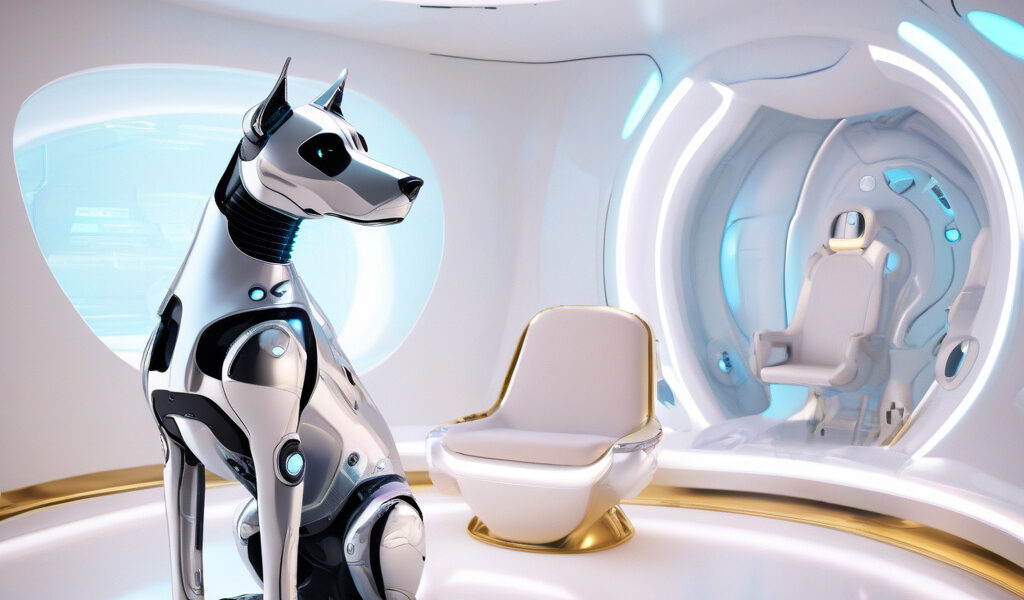A robotic dog improving mental health support
Robotic Dog ‘Jennie’: Revolutionizing Mental Health Support
In the realm of mental health support, technological advancements are continually reshaping the landscape. One such innovation that has been making waves is Tombot’s robotic dog, ‘Jennie’. More than just a mechanical marvel, this lifelike companion is specifically crafted to provide comfort and solace to individuals facing mental health and cognitive challenges. By seamlessly merging innovation with compassion, ‘Jennie’ is paving the way for a new era of support and companionship.
The concept of using robotic animals for therapeutic purposes is not entirely new. Research has shown that interactions with animals can have a profound impact on mental well-being, reducing stress and anxiety while boosting overall mood. However, the logistics of incorporating real animals into therapy sessions can be complex and not always feasible. This is where robotic companions like ‘Jennie’ come into play, offering a low-maintenance yet highly effective alternative.
What sets ‘Jennie’ apart is her strikingly realistic appearance and behavior. Designed to mimic the look and feel of a real dog, she can provide the same level of companionship and comfort without the challenges that come with caring for a living pet. This can be particularly beneficial for individuals who may be unable to have a real animal due to allergies, living situations, or other constraints.
Moreover, ‘Jennie’ is equipped with advanced technology that allows her to respond to human interaction in a lifelike manner. From gentle tail wagging to expressive eyes and responsive movements, each interaction with ‘Jennie’ feels remarkably authentic. This level of realism is crucial in establishing a genuine emotional connection with users, helping them feel understood and supported in ways that traditional therapy methods may not always achieve.
The impact of ‘Jennie’ on mental health support has been nothing short of remarkable. Studies have shown that interactions with robotic pets can lead to reduced feelings of loneliness and depression, increased socialization, and overall improvement in emotional well-being. For individuals facing cognitive challenges such as dementia, ‘Jennie’ can serve as a valuable source of stimulation and engagement, potentially slowing down cognitive decline and enhancing quality of life.
Beyond the individual level, the integration of robotic companions like ‘Jennie’ into mental health care settings can also have broader implications. By supplementing traditional therapy approaches with innovative technologies, care providers can offer more personalized and effective support to a wider range of individuals. This not only enhances the overall quality of care but also helps address the growing demand for mental health services in an increasingly digital world.
As we look to the future of mental health support, the role of technology, and specifically robotic companions, is set to become increasingly prominent. With their ability to provide consistent, non-judgmental support and companionship, robotic pets like ‘Jennie’ have the potential to revolutionize the way we approach mental health care. By harnessing the power of innovation and compassion, we can create a more inclusive and effective support system for those in need.
In conclusion, Tombot’s robotic dog ‘Jennie’ represents a significant step forward in the intersection of technology and mental health support. By offering a lifelike companion that can provide comfort and solace to individuals facing mental health and cognitive challenges, ‘Jennie’ is not just a robotic dog – she is a beacon of hope in an ever-evolving landscape of care and compassion.
#RoboticCompanions, #MentalHealthSupport, #TombotJennie, #TherapeuticTechnology, #CompassionateInnovation












